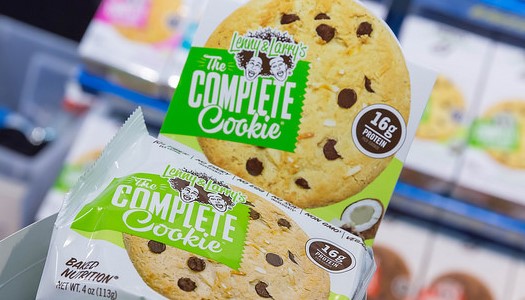
Docket number: 17-cv-1530 (N.D. Ill.)
Class member and CCAF director Ted Frank successfully objected to the settlement of Cowen v. Lenny & Larry’s, Inc., which would have provided class members at most $350,000 but paid attorneys $1.2 million in hard cash—not cookies.
After Frank filed his objection on January 28, 2019, class counsel filed a reply in support of their fee request a week later calling the objection “meritless.” But on February 15, the Department of Justice filed a Statement of Interest in the case, opposing the proposed settlement for many of the same reasons Frank flagged. Within a week, class counsel told the press that the settlement was being renegotiated.
The revised settlement systematically answered Frank’s objection. It added $537,950.30 in cash relief and slashed the fee award from $1.1 million to just $455,000, which corrected the imbalance between fees and benefit. The amended settlement further eliminating the kicker provision, so that if the award was reduced it would go to the class. Finally, bogus “free cookies” provision of the settlement was scaled back.
Frank did not object to the amended settlement, and the DOJ withdrew it’s objection as well. On May 2, 2019, Judge Gettleman conducted a fairness hearing where he remarked that “here, the process worked,” and approved the then-unopposed settlement.
Background
The underlying lawsuit on behalf of Illinois consumers alleged that, according to independent testing, Lenny & Larry’s “The Complete Cookie” contains “40%-50% less protein than stated on the label.” The complaint sought monetary relief for Illinois residents who purchased the allegedly falsely-packaged cookies, and also injunctive relief to correct the alleged false advertising going forward. The parties settled before Lenny & Larry’s answered the complaint, although Lenny & Larry’s CEO denied wrongdoing.
The settlement expanded the class from Illinois residents to all purchasers nationwide until final approval of the settlement is granted. Before the settlement was approved, class members who submitted claims before the deadline of January 29, 2019 could elect to receive $10 cash without a proof of payment (from a cash fund capped at $350,000) or $15 worth of cookies. Class members who purchased after January 29 by definition could receive nothing from the settlement, yet their claims are still released, prohibiting them from suing over the same alleged misconduct. Given the small $350,000 cash fund, defendant was originally committed to give away large numbers of free cookies—$3.15 million worth of cookies, in order to make the settlement value total “$5 million.” Few of these “free cookies” would have goon to class members, but would have instead been distributed by Lenny & Larry’s as free samples at retail locations like GNC.
As Frank wrote in a declaration accompanying his objection: “the attorneys are effectively getting a giant commission on a million dollar advertising campaign for the cookies, which are being valued at full retail value for being given away to non-class members, though the cost to Lenny & Larry’s is likely less than a third of that, while waiving any number of consumer fraud complaints relating to the labeling of the cookies, including consumer fraud complaints that the attorneys had no reason to investigate given the complaint.”
Frank’s objection and the DOJ’s intervention helped class counsel do the right thing. Attorneys took a large fee reduction and added almost $540,000 benefit to class members (class attorneys claimed that the renegotiation of the settlement began before Frank filed his objection, for what it’s worth).
Case Documents
| Description | |
| Apr 23, 2019 | RESPONSE to amended settlement, withdrawing objection |
| Feb 15, 2019 | STATEMENT OF INTEREST by Department of Justice |
| Jan 28, 2019 | OBJECTION of Ted Frank with attachments |
